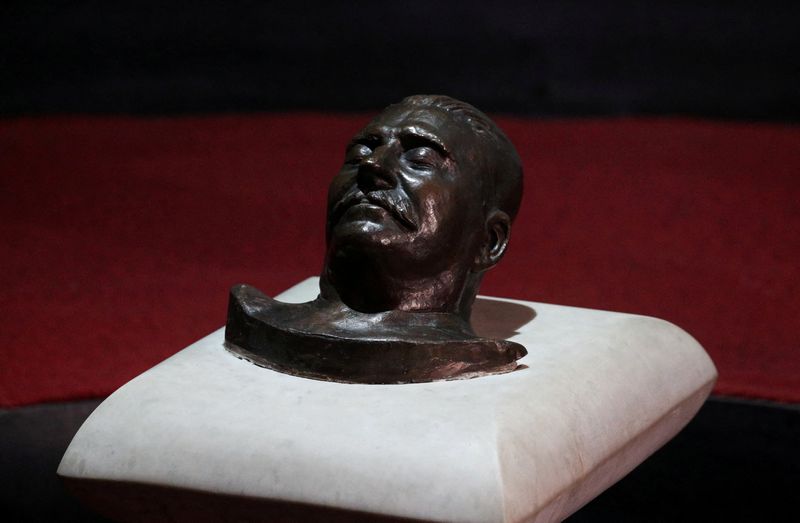Russian governor shows off new Stalin statue to ‘honour’ history
2024.10.11 08:35
(Reuters) – A new monument to Soviet-era leader Josef Stalin is set to be erected soon in a city in northwest Russia following what the regional governor there said were “appeals from the public”.
Vologda Governor Georgy Filimonov published video on Friday showing workers putting the finishing touches to a life-sized statue of the Georgian-born ruler, who ruled the Soviet Union with an iron fist from 1924 until he died in 1953.
Filimonov, who was appointed to his post last year by President Vladimir Putin, said the statue will be erected in the historic city of Vologda, which has a population of around 300,000 and lies roughly 275 miles (450 km) north of Moscow.
“This decision was triggered by appeals from the public to us,” Filimonov wrote on his Telegram channel.
He said the statue would stand near a house where Stalin lived from 1911 to 1912 when exiled in the province for revolutionary activity.
Stalin oversaw rapid industrialisation and victory over Nazi Germany in World War Two but was also responsible for the deaths of millions in political purges, labour camps and famine, according to historians.
Many statues and busts of Stalin were removed following his death, but the war in Ukraine – which Putin casts as an existential battle similar to the fight against the Nazis – has seen some places erect new memorials.
In his post, Filimonov seemed to anticipate push-back to the new statue.
“With all due understanding of the ambiguous interpretation of the role of (this) personality, we must recognise the great achievements, know the history of our country, (and) honour and be proud of it,” he wrote.
Videos previously published by Filimonov demonstrate an affinity for Soviet leaders and photographs of secret police chiefs Lavrentiy Beria and Felix Dzerzhinsky hang on the walls of his office. He has dubbed a painting of himself shaking hands with Stalin, which hangs in his reception room, as “conceptual.”

Filimonov also said on Friday that there were plans to install a monument to Ivan IV, a 16th-century Russian tsar under whom construction of Vologda’s Kremlin began.
Popularly known as Ivan the Terrible, his reign was marked by violent purges of the Russian nobility and failed wars against Sweden and Poland.








